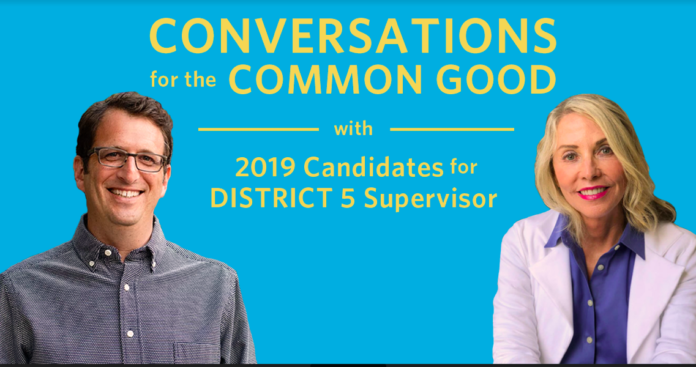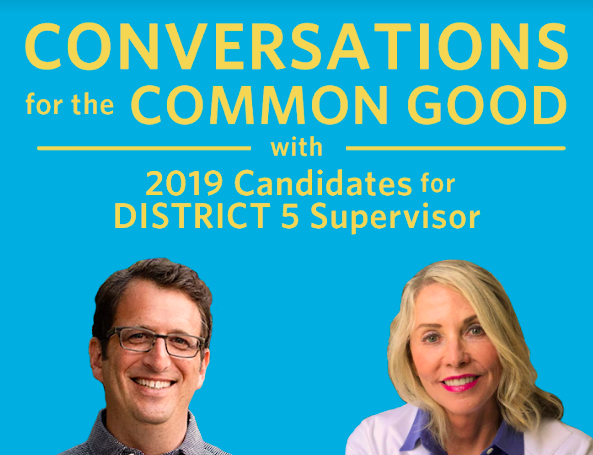
The Board of Supes isn’t back from vacation yet, but the Planning Commission is – and on Thursday/22 the panel will hear a report on how the Planning Department is complying with a mayoral order to speed up housing construction.
You can read the report here. What it says, in essence, is that the department is overturning long-established environmental rules, making it easier for developers to get permits even if their projects create (for example) air-quality issues – and still, housing in not speeding up.

Let me quote from the letter from Planning Director John Rahaim:
Standard Environmental Conditions of Approval for selected CEQA topics. The Department has initiated an effort to replace project-by-project evaluation of required mitigation measures with Standard Environmental Conditions of Approval for several environmental topics, including Air Quality, Biological Resources, Paleontology, Historic Resources, Noise, and Transportation. This will significantly improve the transparency and predictability of the environmental review process, and allow for more projects to be evaluated for eligibility under existing CEQA exemptions, reducing typical review timeframes by several months.
Air quality and transportation are huge issues for development projects in SF, particularly when adding more office or residential space will create significant traffic impacts. Every time we have seen “streamlining” on environmental analysis, it’s been a problem.
Oh, and look at the numbers: Even with the “streamlining,” it doesn’t appear that developers are building anything but a limited amount of luxury housing. That’s because the city’s rules aren’t the real limit to development — the market is driven by speculative capital and land and construction costs. The tech boom has driven up land costs (in a 47-square-mile city) to the point where most housing that isn’t at the very high end doesn’t make any economic sense.
It’s not the rules. It’s capitalism, stupid.
The SFMTA will consider Tuesday/20 naming the Chinatown station for the new underground light rail connection after Rose Pak. It won’t be a simple or easy vote: The last time around, after considerable public pressure and testimony, the panel deadlocked 3-3. The seventh seat has just been filled by Steve Heminger, and if nothing else changes, he will have the final say.
Heminger, appointed by Mayor Breed and confirmed by the supes, is a former director of the MTC.
The supes unanimously approved a resolution by Sup. Aaron Peskin urging the MTA to name the stop the Chinatown Rose Pak station. But practitioners of Falun Gong, a spiritual system that has faced a crackdown from the Chinese government, are strongly opposed and have raised enough money not only for ads and an online presence but for door hangers that dropped in my neighborhood this past weekend.
The politics are interesting: There was a time, back in the early days of Ed Lee’s mayoral administration, when progressives on the board clashed with Pak. She and Willie Brown were the ones who convinced Lee to go back on his promise of serving as a caretaker mayor and run for a full term. She was a strong supporter of his policies, which progressives often opposed.
But over time, Pak developed different alliances. She sided strongly with David Campos in his Assembly race against David Chiu; “to know Chiu is not to trust him,” she told me, repeatedly. She was close to Jane Kim and supported her for state Senate over Lee ally Scott Wiener.
And pretty much everyone agrees that she was the number one advocate for the Central Subway Project, which she said was a way to bring back some of the tourists and shoppers that Chinatown lost when the Embarcadero Freeway came down (against her best efforts, under Mayor Art Agnos, whom she had supported).
And she was furious when Lee appointed Julie Christensen to the D3 supervisor seat that Pak though should have gone to Planning Commissioner Cindy Wu. So she made friends with Peskin – who had often criticized her in the past – and helped him win the seat.
(BTW, back in 2010, when state Sen. Leland Yee was running for mayor, Rose Pak sat down with me over tea at the Chinatown Hilton and told me some hair-raising stories about the senator. She said he was deeply corrupt, took bribes, and was involved in some very sketchy stuff. She produced no evidence. She said none of her sources would talk to me. I knew she disliked Yee, and since there was nothing to go on, I never pursued that story. The FBI did; they got the scoop.)
So expect a loud, long meeting – and if the MTA refuses to go along with the name change, expect the supes to move to take away the MTA’s exclusive naming authority and do it themselves.
The D5 supes races is one of the most important political contests on the November ballot. Both candidates, Dean Preston and incumbent Sup. Vallie Brown, have raised substantial amounts of money (Preston, the challenger, more than keeping pace despite huge amounts of real-estate money going to Brown.) We are waiting for the inevitable flood of independent-expenditure cash that will soon emerge on the Brown side, as the mayor taps her big-money backers to use the IE loophole to send unlimited money into an account that will be used to attack Preston.
In the meantime, the candidates have been meeting in debates and neighborhood forums. One that will be interesting: Thursday/29, Preston and Brown will be at the University of San Francisco McCarthy Center for a discussion that will focus on the issues facing the district – with USF students (many of whom live in D5) leading the dialogue. It’s at 4:30 pm, in the Handlery Room at the Lone Mountain campus, and open to the public. Politics Professor James Taylor will moderate.


